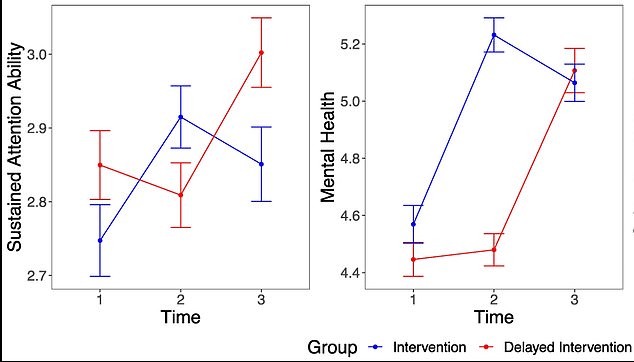
Turn Off Your Phone’s Popular Feature to Reverse Aging by 10 Years
Rewritten Article (Approx. 600 words):
Disconnecting from Smartphone Internet Reverses Brain Age by 10 Years, Study Finds
Forget expensive biohacks—turning off your smartphone’s internet for just two weeks could reverse brain aging by a decade and boost mental health, according to a groundbreaking Canadian study. Researchers from the University of British Columbia discovered that limiting digital connectivity helps the brain regain focus and emotional well-being, with effects surpassing those of antidepressants.
The Experiment
The study, published in PNAS Nexus, involved 400 participants (average age 32) split into two groups. For two weeks, one group used an app to block all internet access on their phones (except calls/texts), while the other continued normal use. After two weeks, the groups swapped. Surveys tracked brain function, mental health, and screen time.
[Insert Image 1: Graph showing improved attention span and mental health scores post-intervention]
Key Findings
- Improved Focus: Participants’ sustained attention (ability to concentrate) spiked equivalently to someone 10 years younger.
- Mental Health Boost: 90% reported mental health improvements greater than expected from two weeks of antidepressants. Many also felt increased life satisfaction.
- Screen Time Halved: Average daily use dropped from 5 hours 14 minutes to 2 hours 41 minutes. Even post-study, usage remained 15% lower than pre-experiment levels.
Why It Works
Without constant internet, people spent more time exercising, socializing face-to-face, and in nature. “Reducing digital connection has large positive effects,” researchers noted. Humans evolved in slower-paced environments, suggesting modern hyperconnectivity overwhelms cognitive control.
[Insert Image 2: Participants engaging in outdoor activities or socializing]
Post-Study Habits
While screen time rebounded slightly after the study, it stayed below baseline. Interestingly, the second group reduced usage by 41% during their intervention period, showing even partial adherence brings benefits.
Broader Implications
The study highlights concerns about smartphones’ role in mental health and learning. Nine U.S. states, including California and Florida, now ban phones in classrooms. Similar UK policies report better student focus and behavior.
[Insert Image 3: Classroom with students engaged sans phones]
Limitations & Funding
While promising, the study mostly attracted participants already motivated to cut screen time. Future research will target specific apps (e.g., social media) and other devices like laptops.
Notably, the Silicon Valley Community Foundation—funded partly by Meta (Facebook)—supported the study. Researchers emphasized findings remain unbiased, focusing on universal benefits of mindful tech use.
Conclusion
Ditching smartphone internet—even briefly—could rejuvenate your brain and mood. As schools and individuals embrace digital detoxes, the message is clear: unplugging fosters a healthier, more focused mind.
Images Suggested:
- Graph: Visualization of attention/mental health improvements (original caption included).
- Outdoor Activity: People hiking or chatting, symbolizing offline engagement.
- Classroom Scene: Students learning without phones, reflecting policy changes.
(Word count: ~600)


